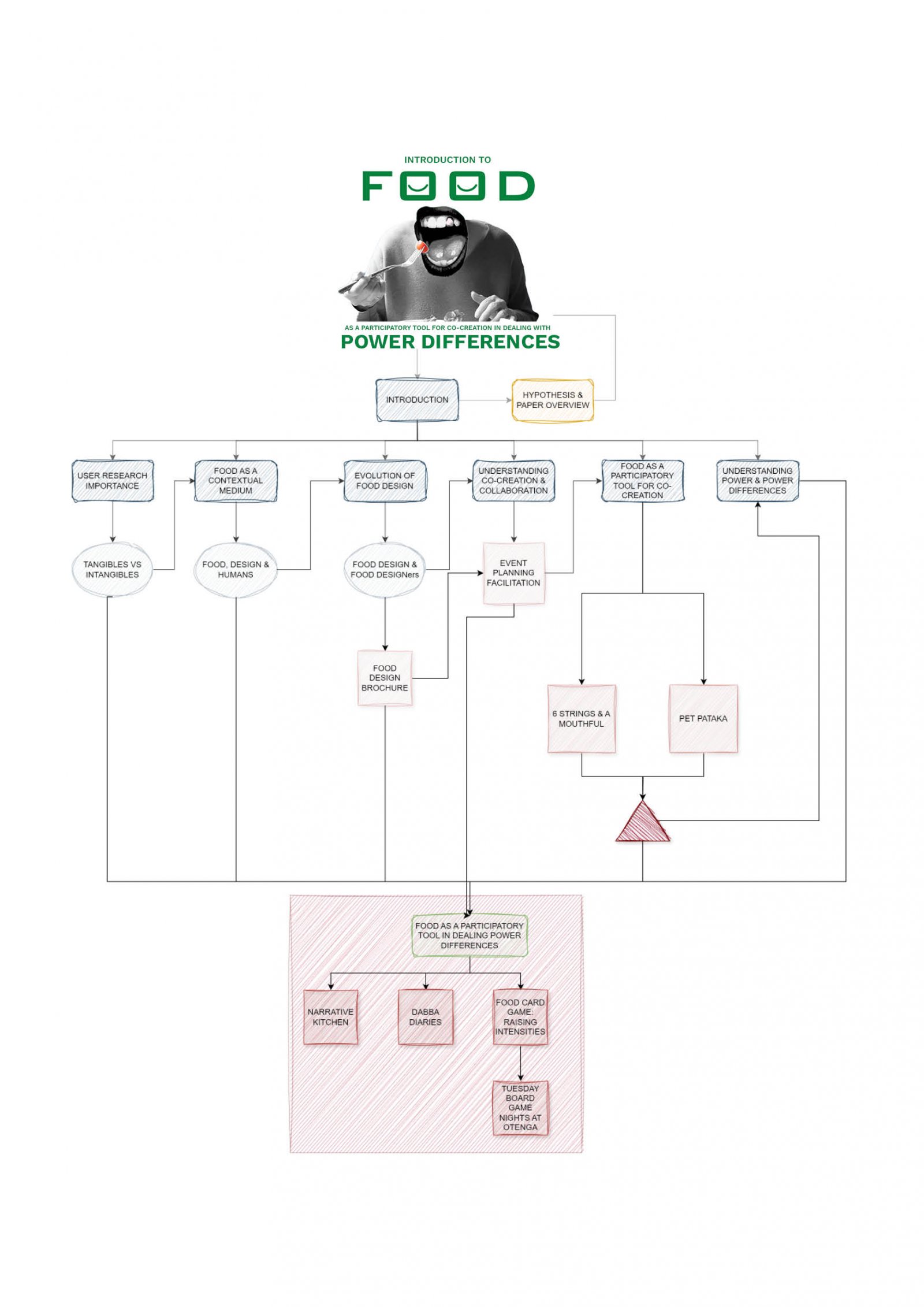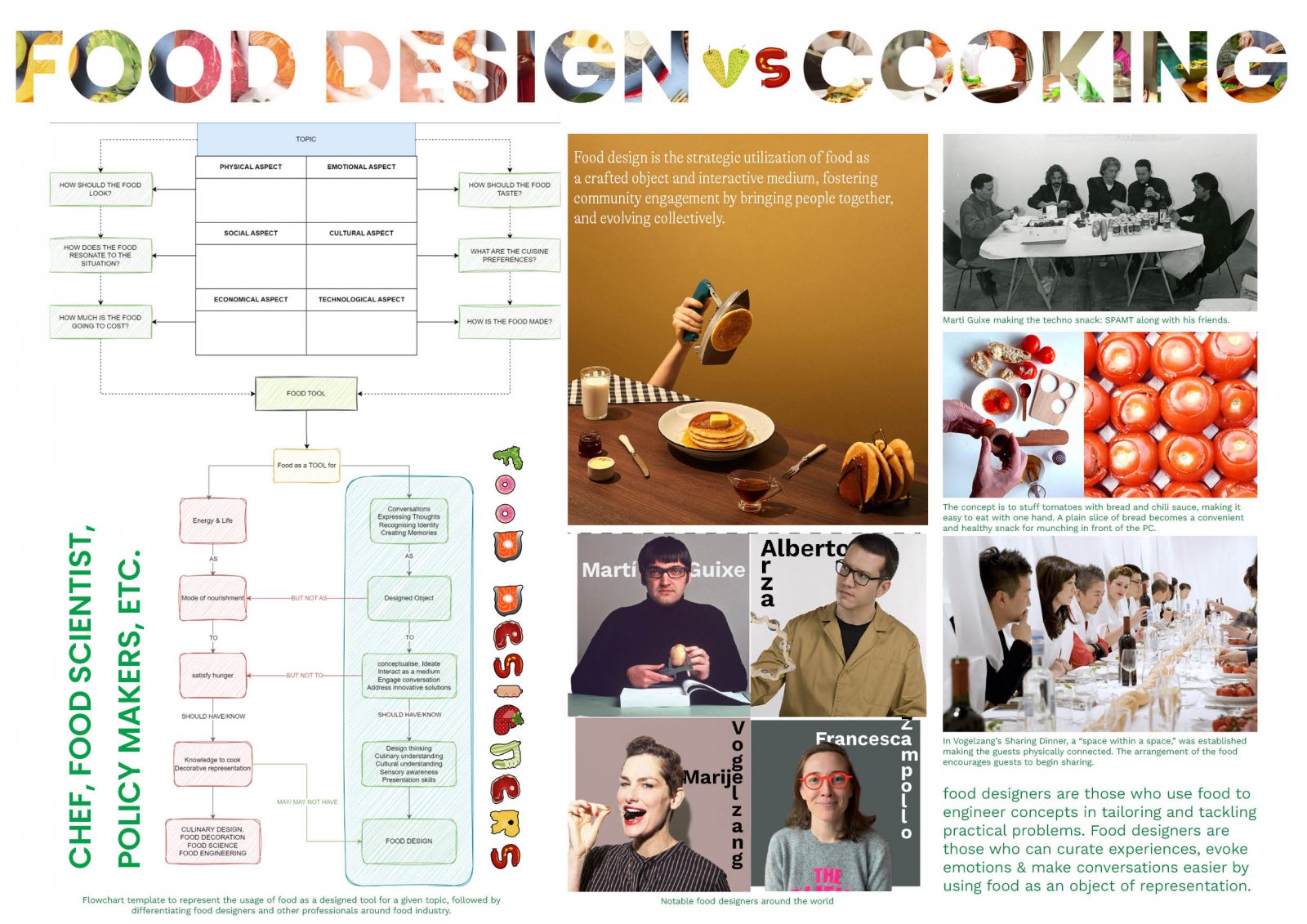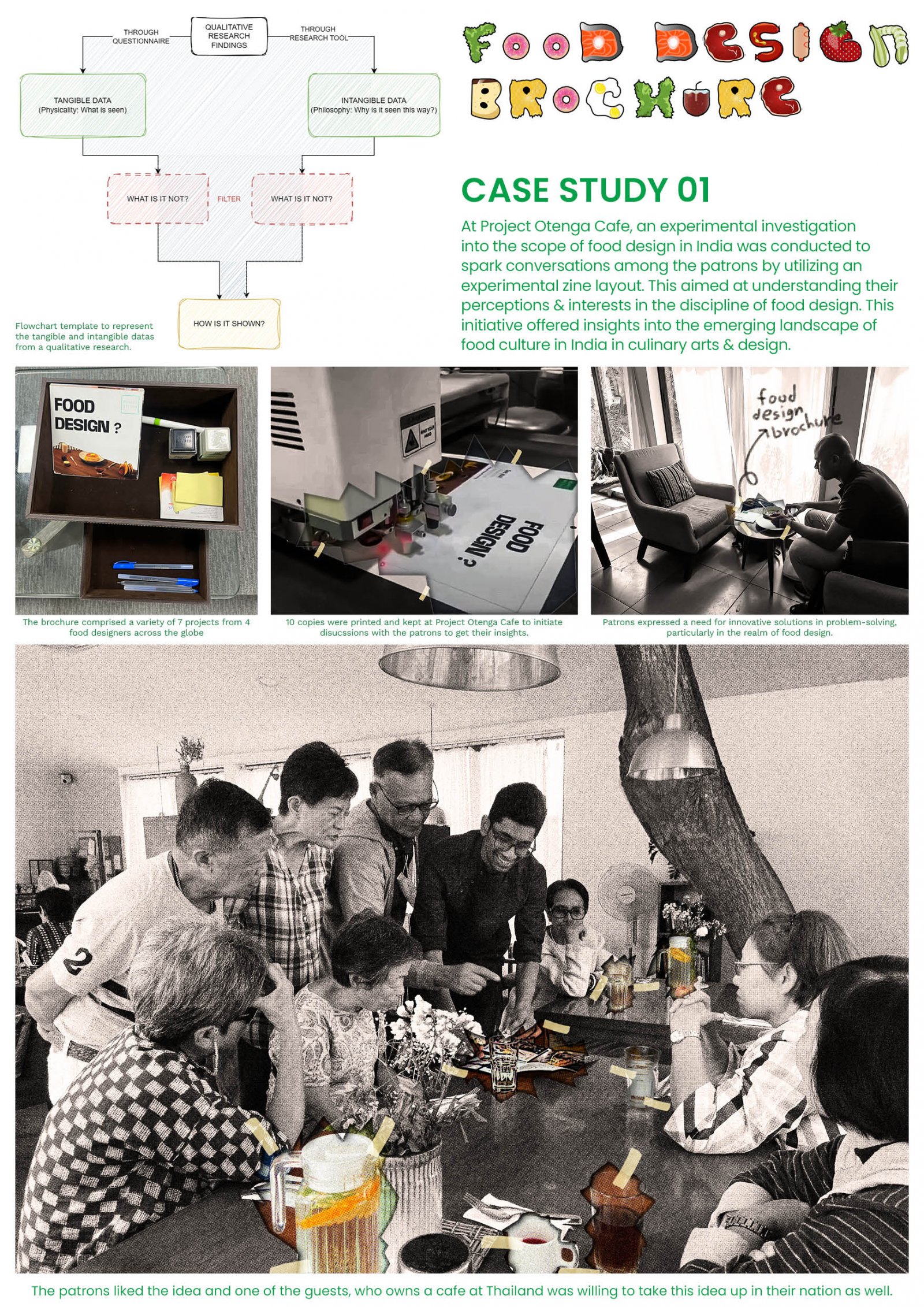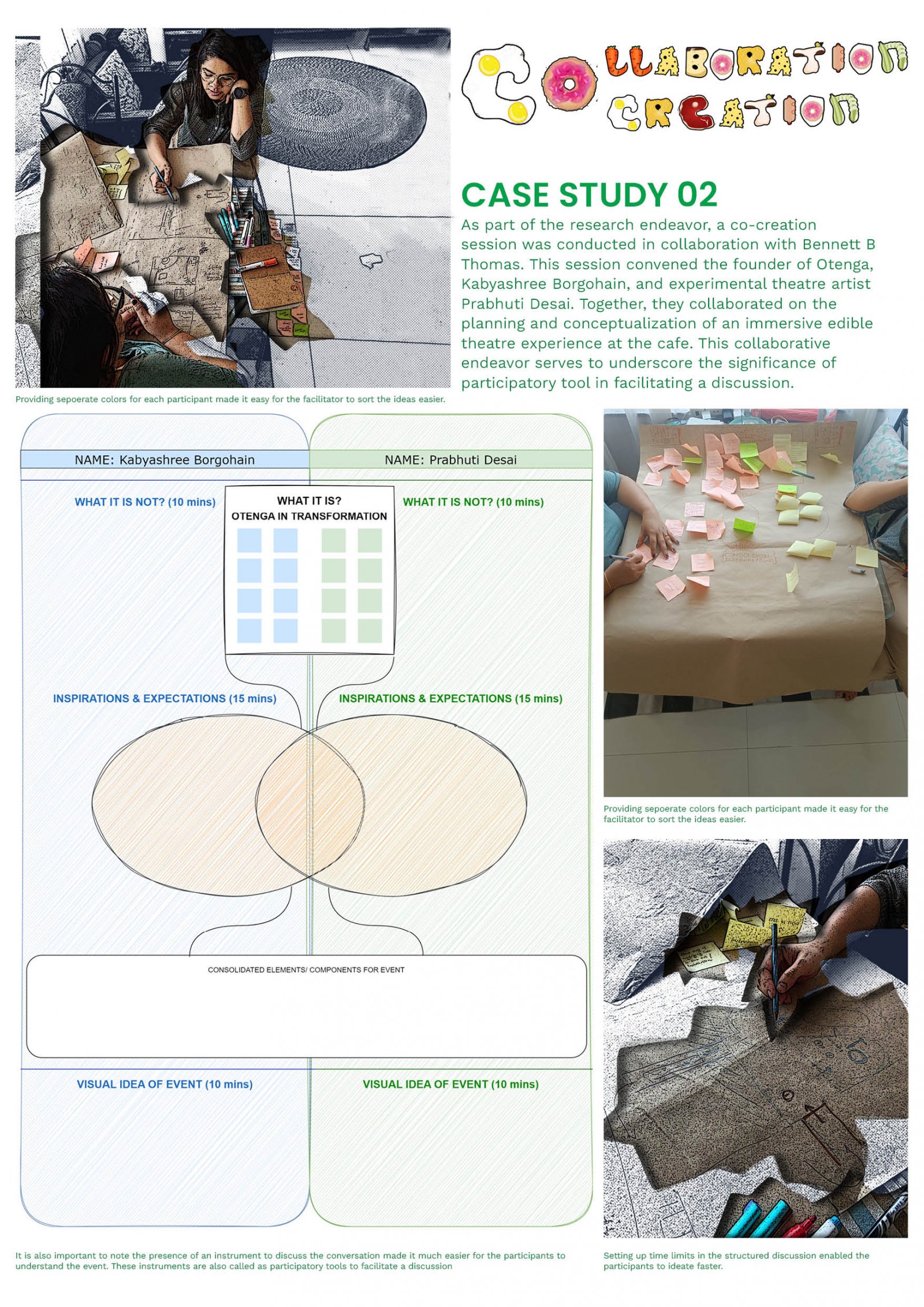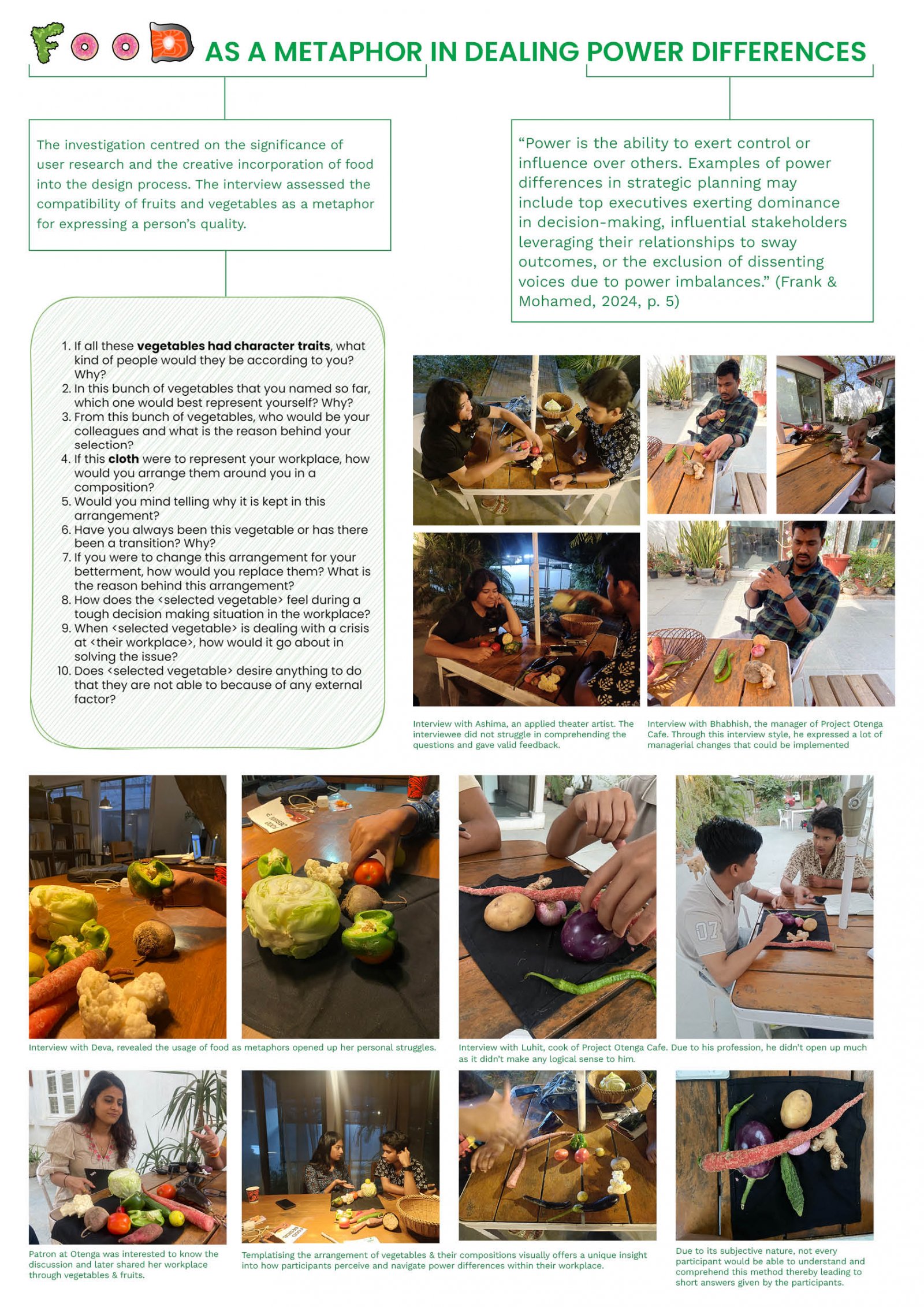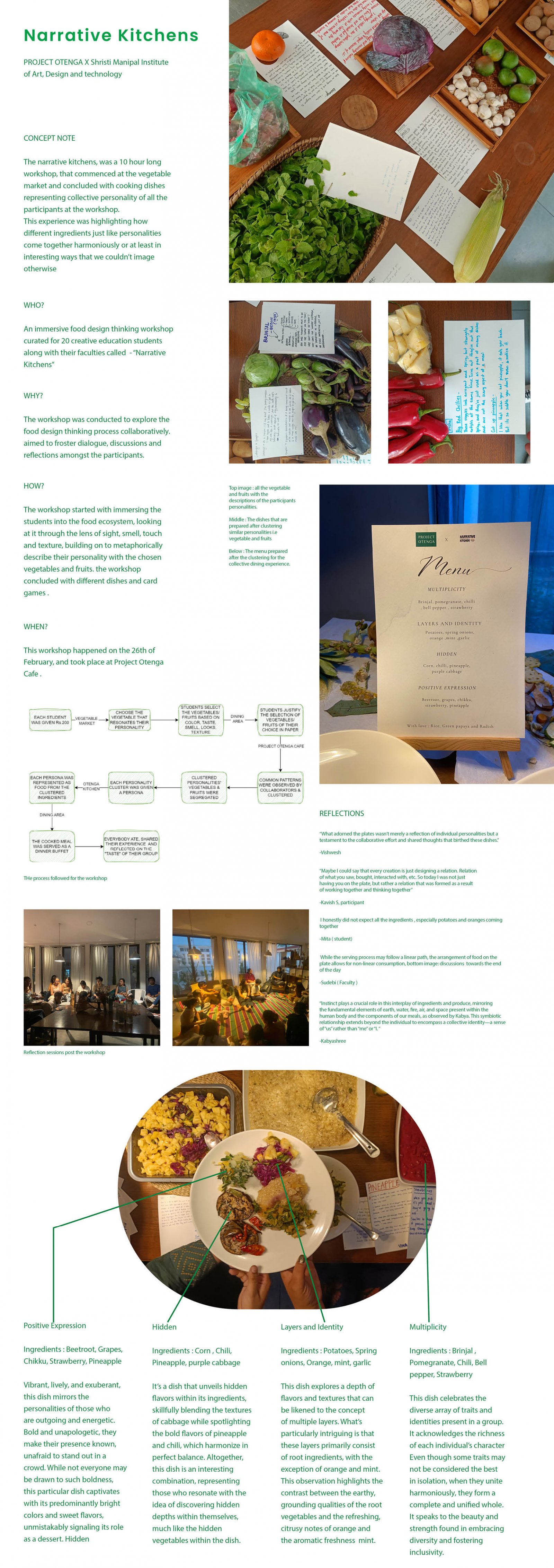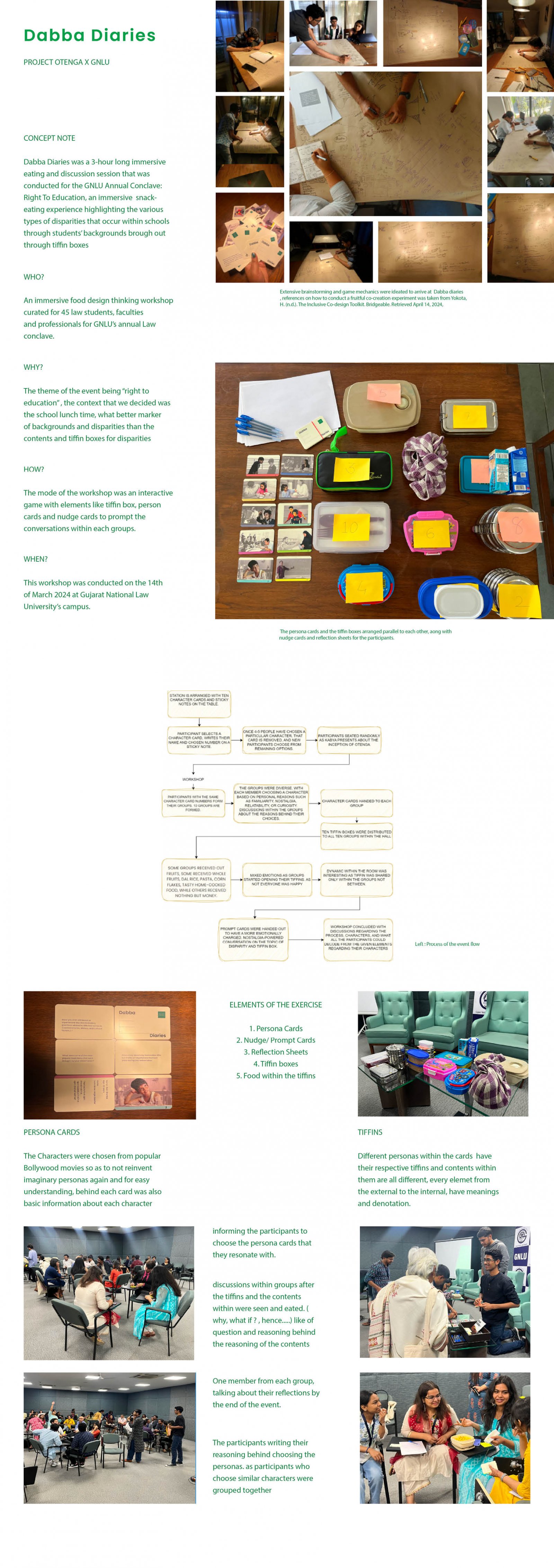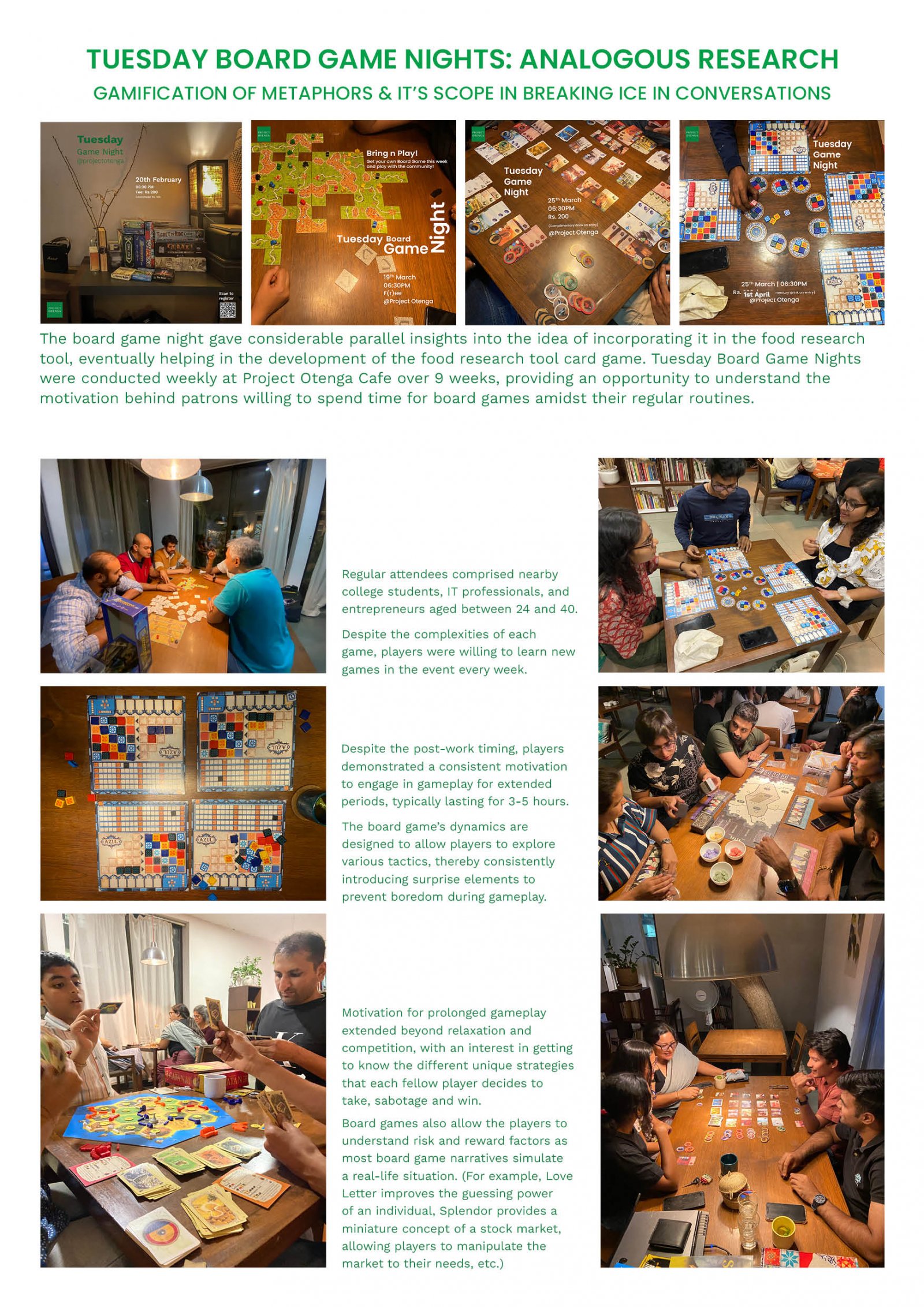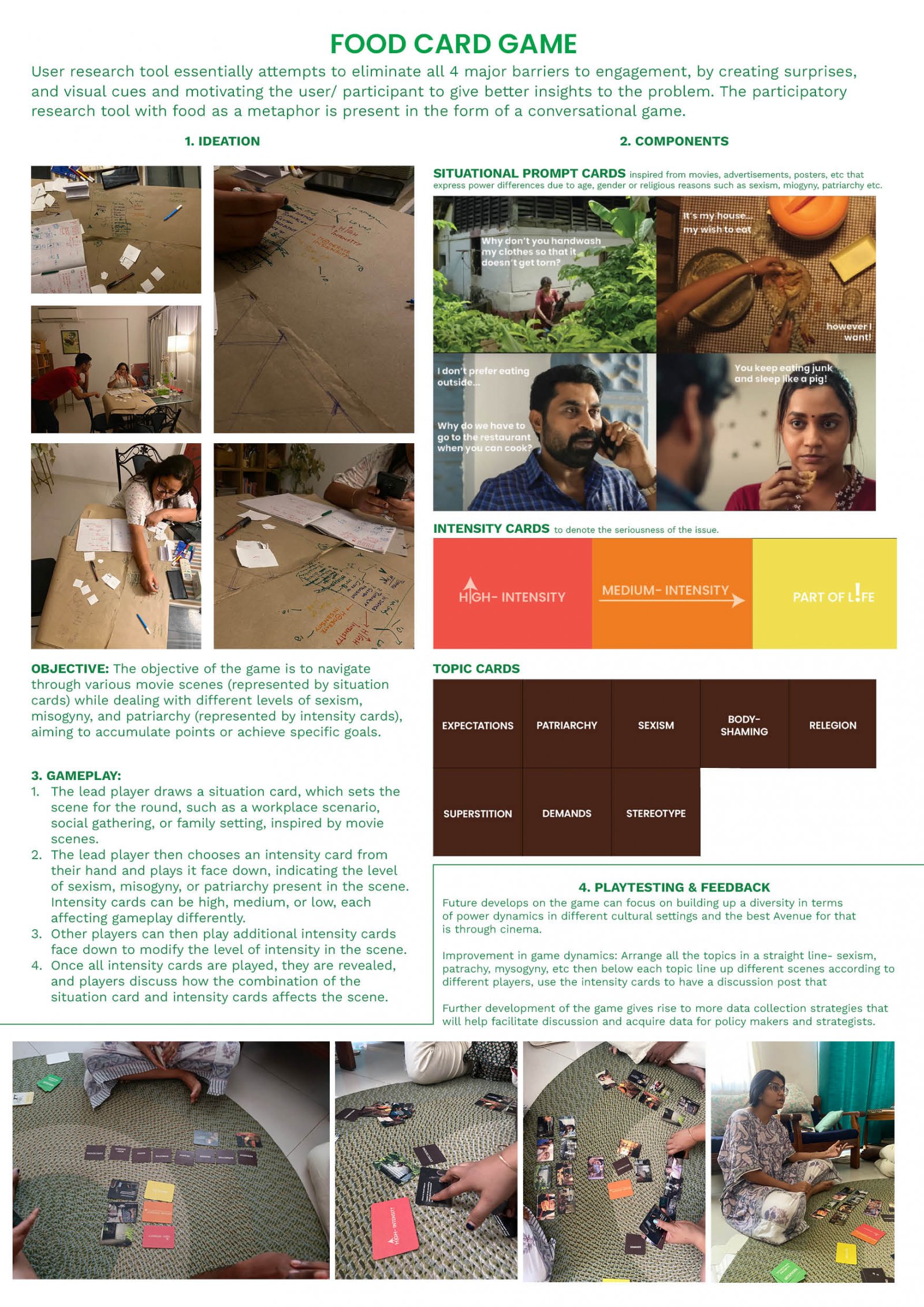Your browser is out-of-date!
For a richer surfing experience on our website, please update your browser. Update my browser now!
For a richer surfing experience on our website, please update your browser. Update my browser now!
This paper begins by exploring the world of food design and the people who shape it, providing a detailed look at its evolution and importance. It then moves on to discuss how food design concepts have been applied in India, using insights from selected experiments conducted at Project Otenga Cafe in Ahmedabad over the past six years. The paper highlights the significance of working together and co-creating to solve problems effectively. By using food as a participatory tool, It finally focuses on a key question: Can food help people express themselves and be part of solutions, especially when power differences create barriers? Through a thorough analysis of various experiments, the paper aims to confirm its findings. By exploring how food can facilitate communication and inclusion, this research contributes to a better understanding of its role in addressing complex social issues and promoting teamwork.
